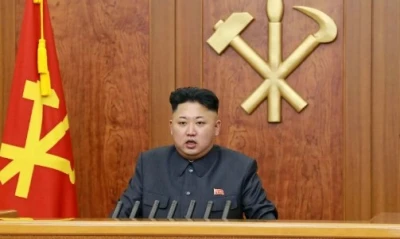North Korean leader Kim Jong Un has
officially labelled South Korea as his country’s “principal enemy,” marking a
significant shift in rhetoric that includes abandoning agencies dedicated to
reunification and issuing war threats over minor territorial disputes.
Despite Kim’s declaration that he has no
intention of starting a war, analysts express concerns as inter-Korean
mechanisms to prevent conflicts have been eliminated, raising the risk of a
military skirmish.
“In the past when there was a risk of an
armed conflict, there was a back channel to keep it in control, but now there
is none of that,” warns Hong Min, a senior analyst at the Korea Institute for
National Unification in Seoul.
Kim’s refusal to recognize the de facto
maritime border between the two Koreas, known as the Northern Limit Line,
coupled with live-fire artillery drills conducted by his military, adds to the
growing tensions.
Analysts suggest a rising possibility of
the two sides engaging in a military skirmish, with potential consequences
leading to a broader conflict.
Furthermore, North Korea’s increasing
proximity to Moscow, including allegations of sending missiles for Russia’s war
in Ukraine in exchange for satellite program assistance, raises international
concerns.
In response, Seoul has adopted a hawkish
approach, threatening a “multiple times stronger” response to any provocation.
The situation is complicated by the
upcoming general election in South Korea in April, where President Yoon Suk
Yeol’s party seeks to regain control of the country’s parliament. Analysts
speculate that Kim may be attempting to politically influence the Yoon
administration for its policies toward Pyongyang.
Soo Kim, policy practice area lead at
LMI Consulting and former CIA analyst, suggests that Kim’s new messaging
appears to be an ideological adjustment for regime survival, justifying his
focus on nuclear missiles.
Despite years of border closures and
strict controls on information flow, North Koreans are becoming increasingly
aware of their country’s economic failings compared to South Korean successes,
prompting Kim to emphasize military prowess for domestic legitimacy.
Analysts remain cautious, emphasizing
the need for careful management to prevent the situation from escalating
further. The strained prospects for inter-Korean reconciliation and Kim’s
ideological focus on nuclear missiles add complexity to the already delicate
situation on the Korean Peninsula.

















